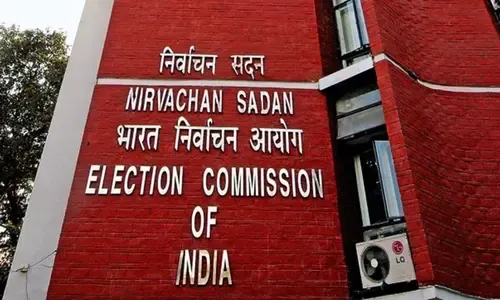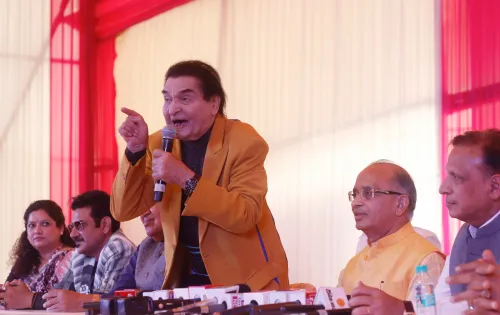Has the ECI Started the Process to Delist 345 Dormant Political Parties?

Synopsis
Key Takeaways
- The ECI has begun the delisting of inactive political parties.
- 345 RUPPs have been identified for potential removal.
- This initiative aims to promote political accountability.
- Parties will have a chance to respond before final decisions are made.
- It reflects a commitment to transparency in the electoral process.
New Delhi, June 26 (NationPress) The Election Commission of India (ECI) has initiated a significant cleanup initiative focused on inactive political organizations, commencing actions to remove 345 Registered Unrecognised Political Parties (RUPPs) nationwide.
According to the ECI, these parties have not participated in any elections since 2019 and are impossible to locate at their registered addresses.
This action is spearheaded by Chief Election Commissioner Gyanesh Kumar, along with Election Commissioners Sukhbir Singh Sandhu and Vivek Joshi.
In a press release issued on Thursday, the electoral body noted that from over 2,800 RUPPs currently on the registry, numerous parties do not fulfill the essential criteria for ongoing registration as per Section 29A of the Representation of the People Act, 1951.
The statement elaborated, "Thus, a comprehensive nationwide effort was made by the ECI to identify such RUPPs, and as of today, 345 have been identified."
Consequently, Chief Electoral Officers (CEOs) from the respective States and Union Territories have been instructed to send show-cause notices to these parties.
The ECI mentioned, "To ensure no party faces wrongful delisting, the CEOs have been directed to issue show-cause notices to the identified RUPPs. Following this, an opportunity for a hearing will be provided to these parties by the concerned CEOs."
The final verdict on delisting will be determined by the ECI after evaluating the parties' responses.
Political entities (National/State/RUPPs) in India are registered with the ECI under the provisions of Section 29A of the Representation of the People Act 1951.
This section grants any registered political party certain benefits, including tax exemptions, among others.
This initiative is perceived as a move to prevent the inappropriate use of political registrations for unfair advantages, thereby promoting greater transparency and accountability in the political arena.









